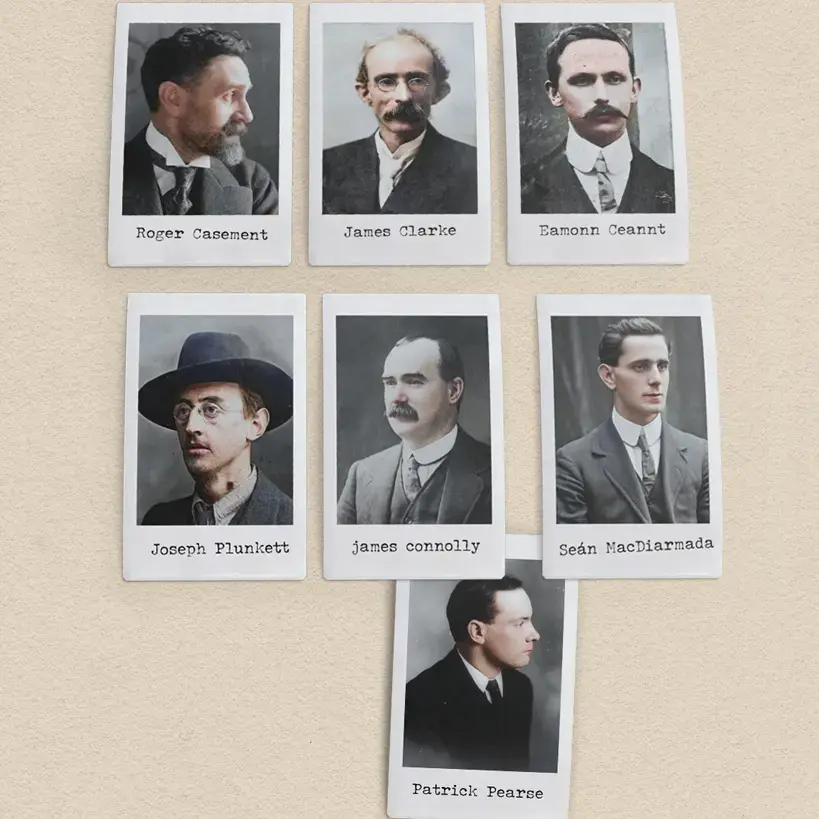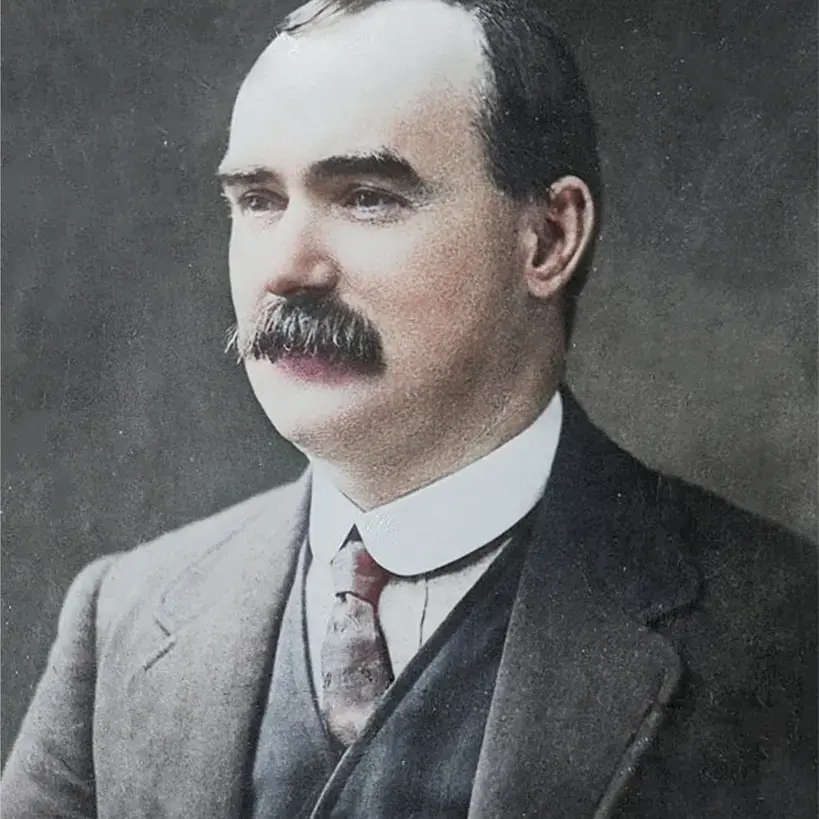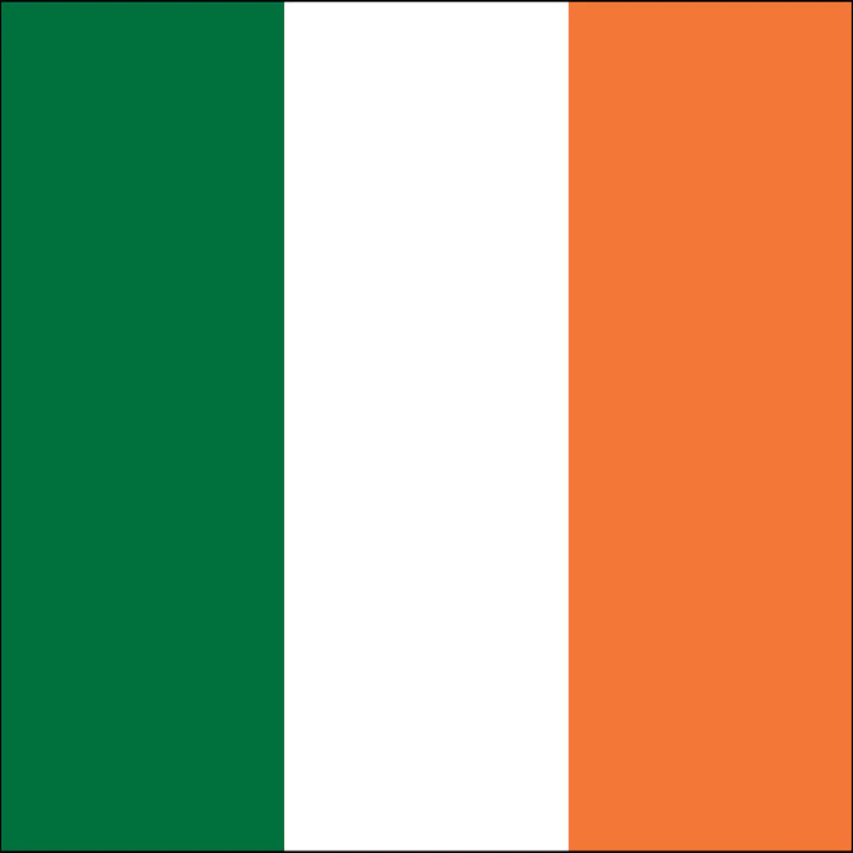Today, in 1916, Ireland’s single most famous challenge to centuries of British imperialism began, the Easter Rising. While Britain crushed the uprising and killed its leaders, it set off the process that expelled Britain from 26 Irish counties, today the Republic of Ireland.
The underground Irish Republican Brotherhood plotted the rising, which formed a military council of seven men who commanded the Irish Volunteers and James Connolly’s socialist Irish Citizen Army (ICA).
None of the men had extensive military experience, but amongst them were great organizers and influential speakers who could rally the masses. Although a revolt had been in the works for some time, the rising was triggered when England used WWI as an excuse to suspend home rule.
The rebels also saw an opportunity to go on the offensive while England was bogged down in WWI. Their slogan became: “England’s difficulty is Ireland’s opportunity,” and they set about taking on the might of the British Empire to win Ireland’s freedom.
On Easter Monday, the first day of the rising, poet, teacher, and rebel leader Patrick Pearse declared the “Irish Republic.” Outside the General Post Office in Dublin, he read out the provisional government’s proclamation.
The proclamation declared equality for all Ireland’s people, offering hope of healing the religious divide Britain had inflicted upon Ireland.
With the influence of socialists like James Connolly in the rising’s leadership, the proclamation was trailblazing for its era, demanding universal suffrage for women at a time when women in England didn’t have the right to vote.
An estimated 276 women were involved in the rising, most famously Countess Constance Markievicz, who betrayed her aristocratic family, joined the ICA, and devoted her life to the cause of Irish freedom.
By the fifth day, the British had brutally crushed the rebels and then arrested over 3,000 people. The rising’s leaders were court-martialed and soon after executed. Connolly was so severely beaten that British soldiers had to tie him upright to a chair so they could shoot him.
While the rising initially received ambiguous support, their callous execution ensured their place as national heroes, and the insurrection of the few inspired the revolt of the many. Just three years later, the Irish War of Independence would begin.
Source: @redstreamnet on YouTube



T’was England who bade her wild geese flocks
That small nations might be free
But their only graves be at Suvla’s waves, at the fringe of the great North Sea
- The Foggy Dew, a song about the Easter Uprising…
One more thing i’ll add is that i’m always struck by how well these songs fit what is happening in Palestine. One day the whole world will look on the brave fighters who are today resisting that horrific occupation and genocide the same way that we look at the Irish rebels today:
But the bravest fell, and the requiem bell Rang mournfully and clear For those who died that Eastertide In the springing of the year. And the world did gaze in deep amaze At those fearless men and true Who bore the fight that freedom’s light Might shine through the foggy dew.
Great song and very moving lyrics. For a more light hearted tune i also like The Starry Plough.
I found a YouTube link in your comment. Here are links to the same video on alternative frontends that protect your privacy:



